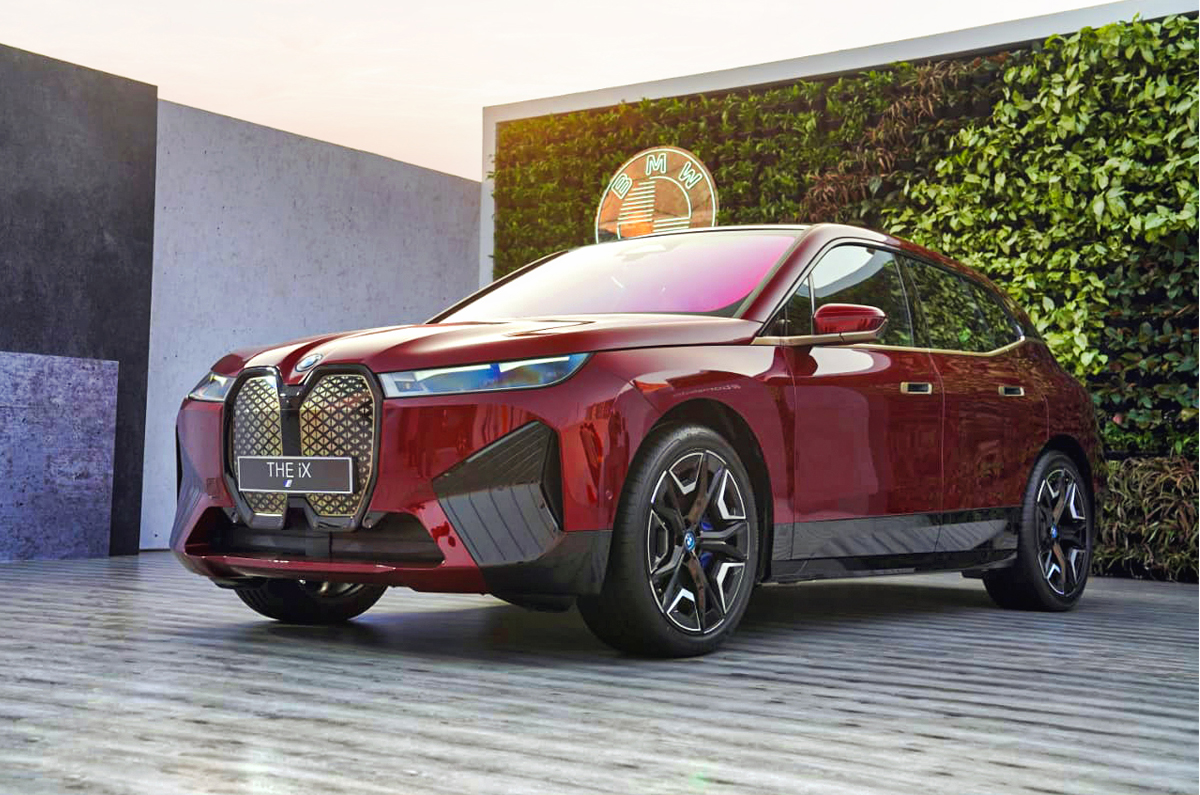The brand also posted its best-ever half-yearly sales, almost equally split between sedans and SUVs.
BMW India has posted sales of 5,867 units in the first six months of 2023, thereby recording its best-ever half-yearly, quarterly and June sales. Of the 5,867 units, 391 units came from Mini, and BMW and Mini recorded year-on-year growth of 5.5 percent and 3 percent, respectively.
With supply constraints still prevalent in the first four months of the year, most of the growth has come in May and June with 32 percent combined, year-on-year.
- Top three bestselling models were X1, 3 Series and X7
- iX was the bestselling electric vehicle
- Top-end vehicles witnessed 128 percent year-on-year growth
BMW India half-yearly sales
The new X1, which launched in India earlier this year, was the brand’s bestselling model in the first six months, having contributed more than 20 percent of total sales. BMW says it has received its highest-ever bookings since launch, and with a strong order pipeline, the current waiting period goes up to three months.
Meanwhile, the 3 Series Gran Limousine was its bestselling sedan, having contributed close to 20 percent of total sales. In fact, contrary to the market trend, BMW has witnessed equal demand for both its sedans and SUVs. Speaking to Autocar India, Vikram Pawah, BMW Group India’s president and CEO, says, “In the first half of the year with 50 percent SUVs and 50 percent sedans, growth is absolutely balanced in every sub-segment of the premium space. Be it the X1 or the 7 Series, both are adding similar kinds of volume growth. The 3 Series Gran Limousine continues to be a static performance in terms of percentage of our sales”
He adds, “I don’t expect [BMW] to be either a sedan brand or an SUV brand. I think it will be a good balance of both.”
The top end of the luxury vehicle segment comprising the 7 Series, i7, X7 and XM witnessed an astounding growth of 128 percent year-on-year, and they now contribute 20 percent of total sales. BMW says the all-electric i7, in particular, has received a great response, and waiting periods for these top-end vehicles are at four months on average.
Meanwhile, the locally produced Countryman was Mini’s bestselling model, making up over 60 percent of overall sales. The 3-door Mini hatchback contributed to around 20 of percent sales, while the all-electric Cooper SE constituted 14 percent of sales.
50 percent share in luxury EV market
Although BMW was among the last luxury carmakers to enter the premium EV segment in India, it has stormed the space by securing a 50 percent market share. The iX was the brand’s bestselling EV, and BMW says it has delivered 46 percent more EVs in the first six months of 2023 than it has in the entire of 2022, thereby recording 11 percent year-on-year growth in the EV space already.
The iX, in fact, has sold more than all other luxury EVs in the first six months combined, thereby making it the bestselling premium EV. “It has the space, it has the technology, it has the road presence. And on top of that, it is electric, which gives you 50 percent running cost,” says Pawah.
The company has sold close to 500 units in the first six months of this calendar year – comprising 12 percent of overall sales – and expects to breach the four-digit mark comfortably by the end of the year. Pawah expects the overall share of EVs in its portfolio to move up to 30 percent by 2025.
Drivers of the growth
Pawah says there are three primary factors driving this notable growth in the luxury segment – the state of the Indian economy in the context of the global scenario; the improving road infrastructure facilitating the adoption of luxury vehicles; and lastly, what’s specific to BMW, is a good response to new launches in the market.
“The Indian economy has been quite robust, quite resilient, even in these so-called uncertain times when the whole world is talking about recession. I don’t think we see that in India at all, and there are good reasons for that. The inherent strength of the Indian economy itself, I think, is strong, and also we haven’t faced inflationary conditions like the rest of the world. We haven’t gone up from 1 percent inflation rate to 7 percent suddenly,” he says.
On the infrastructure front, Pawah says, “Improving highways and road network have given us the opportunity to drive better and when you have that opportunity to drive, I’m sure you’ll choose a bigger and a safer and a better car… You can actually drive safely at speeds of 120kph and the best way to do it is with luxury cars.”
Lastly, on the product front, he says the brand has received a great response for all the products that it has launched this year so far. In fact, Pawah highlights that the majority of the new X1’s buyers were first-time luxury vehicle buyers. “It’s not only the numbers, but what’s important is the type of customers that we’re getting. Two-thirds of the buyers of the new X1 are first-time premium buyers,” he adds.
On the other side of the price range, there were a slew of new launches as well as updates to existing models. The 7 Series moved on to an all-new generation and the X7 received a mid-lifecycle facelift. The i7 and the XM, meanwhile, were all new launches. These top-end products witnessed 128 percent growth and now contribute to 20 percent of total sales.
Also See:
Audi India SUV sales grow over 200 percent in the first half of 2023
Mercedes-Benz India records highest half-yearly sales in 2023


